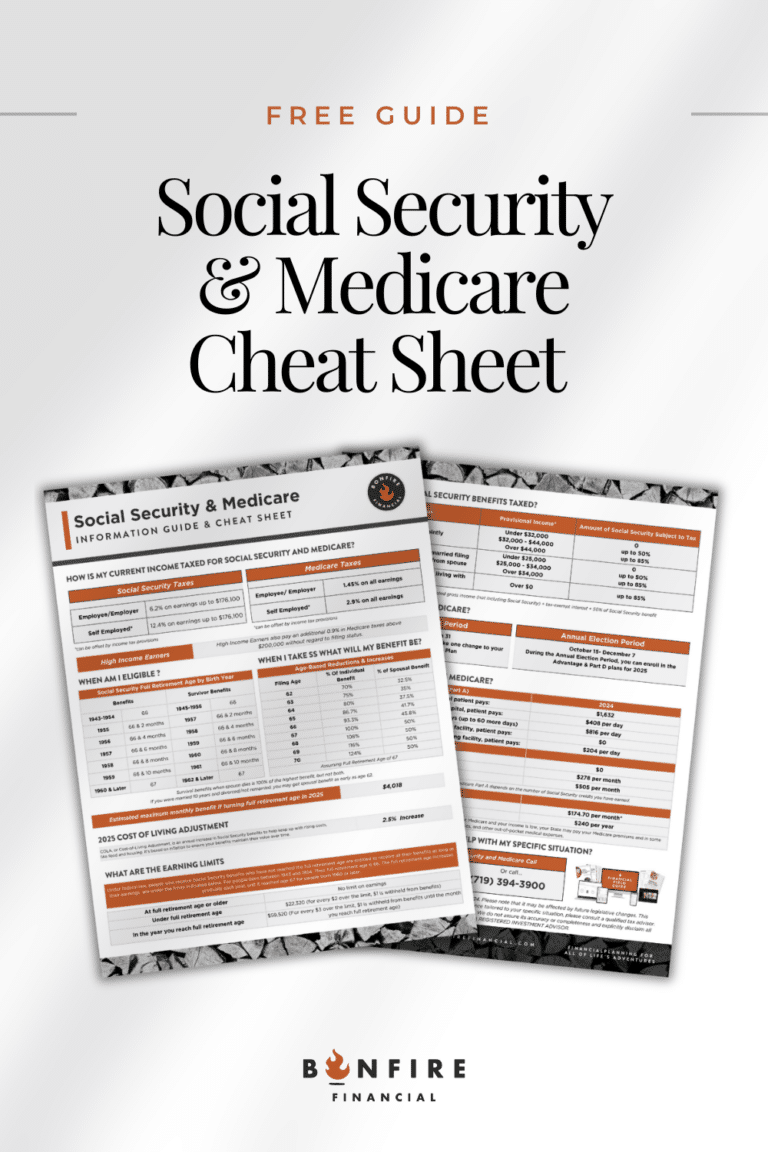Wills and Trusts
Estate planning is one of those topics that almost every client eventually brings up. The most common question? Do I need a trust, or is a will good enough?
It seems like a straightforward choice, but the reality is more nuanced. The right decision depends on your goals, the type of assets you own, your state’s probate rules, and how much control and privacy you want when transferring wealth to your heirs.
Today we’ll walk through the differences between wills and trusts, the advantages and disadvantages of each, and how to decide what works best for your unique situation. Whether you’re just starting your estate planning journey or managing significant wealth, understanding these tools is essential to protecting your legacy.
Listen Now: iTunes | Spotify | iHeartRadio | Amazon Music
What Exactly Is a Will?
A will is a legal document that outlines how you want your assets distributed when you pass away. It can cover everything from financial accounts to personal items to naming guardians for children.
Key Features of a Will
• Cost-effective: Generally less expensive to create than a trust.
• Simple: Straightforward for people with uncomplicated estates.
• Flexible: Can be updated or rewritten as your circumstances change.
Limitations of a Will
• Probate required: A will must go through the probate process, which can be lengthy, public, and expensive depending on your state.
• Public record: Once filed, wills are accessible to the public, which means less privacy for your family.
• Limited control: A will can specify who gets what, but it doesn’t provide mechanisms to control how assets are used after distribution.
What Is a Trust?
A trust is a legal arrangement where you (the grantor) place assets into the trust, managed by a trustee, for the benefit of your chosen beneficiaries.
Key Features of a Trust
• Avoids probate: Assets in a trust typically bypass probate, speeding up distribution.
• Privacy: Unlike wills, trusts remain private documents.
• Control beyond the grave: Trusts allow you to set conditions, such as how and when heirs receive assets.
• Asset protection: Certain types of trusts can shield wealth from creditors and lawsuits.
Limitations of a Trust
• Cost: More expensive to establish and maintain than a will.
• Complexity: Requires ongoing administration and proper funding (transferring assets into the trust).
• Not always necessary: For those with simple estates, the benefits may not outweigh the costs.
Qualified vs Non-Qualified Accounts: Why It Matters
Before deciding on a will or trust, it’s important to understand the difference between qualified and non-qualified accounts.
Qualified accounts are retirement accounts like 401(k)s, IRAs, and Roth IRAs. These accounts already require you to name beneficiaries, which makes them function somewhat like a built-in estate plan. Upon death, they pass directly to your beneficiaries without probate.
Non-qualified accounts include brokerage accounts, joint accounts, partnerships, or business interests. These assets often require more planning, as they don’t automatically bypass probate.
This distinction matters because if most of your wealth is in qualified accounts, a will might suffice. But if you own significant non-qualified assets, a trust may be essential.
When a Will Is Likely Enough
For many people, a simple will paired with beneficiary designations on retirement accounts is sufficient. Situations where a will works well include:
• You own mostly qualified accounts (401(k), IRA, Roth IRA).
• You live in a state with a simple, inexpensive probate process.
• You don’t own complex assets like businesses or multiple properties.
• Your goal is straightforward distribution (for example, split equally between two children).
In these cases, a will is cost-effective, easy to create, and accomplishes the main goal of ensuring your wealth passes to your heirs.
When a Trust Makes More Sense
For high-net-worth families and individuals with complex estates, a trust offers far more control. A trust may be the better option if you:
• Own significant real estate holdings or multiple properties.
• Have business interests or complex partnership agreements.
• Want to avoid probate in a state with expensive or time-consuming probate processes.
• Desire privacy around your assets and beneficiaries.
• Wish to control how assets are used after your death (for example, preventing an ex-spouse from accessing money or ensuring funds are used only for education).
• Are concerned about creditor protection for your heirs.
The Privacy Factor
One often-overlooked difference is that wills are public record, trusts are not.
For high-net-worth families, privacy can be critical. A will could expose not just who inherits, but how much, making your family vulnerable to unwanted attention. A trust shields this information, keeping your financial affairs confidential.
Probate: What You Need to Know
Probate is the court-supervised process of validating a will and distributing assets. While some states make probate fairly straightforward, others are notoriously expensive and time-consuming.
For wealthy families, probate can also open the door to disputes, delays, and unwanted scrutiny. A trust is one of the most effective tools to sidestep this process.
Using TOD (Transfer on Death) Designations
Even without a trust, you can simplify wealth transfer with a Transfer on Death (TOD) designation. This allows certain accounts, like non-qualified brokerage accounts, to pass directly to beneficiaries, just like retirement accounts.
It’s a cost-effective way to reduce probate exposure if your estate is relatively simple.
Common Misconceptions
“I need a trust if I have $5 million or more.”
Not always true. The decision depends on your assets and goals, not just the dollar amount.
“Trusts are only for the ultra-wealthy.”
Incorrect. Even moderately wealthy families benefit from the privacy, control, and probate avoidance that trusts provide.
“A will covers everything.”
No. Beneficiary designations and account titling often supersede what’s written in a will.
The Role of Your Advisor and Attorney
Choosing between a will and a trust isn’t a DIY project. It’s a collaborative process between your financial advisor and your estate attorney.
Your advisor helps clarify your goals, analyze account structures, and ensure your overall financial plan aligns with your estate plan.
Your attorney drafts the legal documents and ensures they comply with state laws.
A good estate planning meeting should never be one-sided. If an attorney pushes only wills or only trusts without understanding your situation, that’s a red flag.
Key Questions to Ask Yourself
-
Do I want privacy around my estate?
-
How complex are my assets (real estate, businesses, partnerships)?
-
Do I want to control how my heirs use their inheritance?
-
How important is creditor protection for my family?
-
Is my state’s probate process costly or burdensome?
-
Am I willing to invest in setting up and maintaining a trust?
Your answers will guide whether a will, a trust, or a combination of both is best.
Combining Wills, Trusts, and Beneficiary Designations
In practice, many families use a layered approach:
• A will to cover personal wishes and simple assets.
• Beneficiary designations on retirement accounts and life insurance.
• A trust for complex assets, privacy, and ongoing control.
This strategy provides both efficiency and protection, ensuring no part of your estate is overlooked.
Final Thoughts
When it comes to wills vs trusts, there is no universal answer. Both tools serve important roles, and the right choice depends on your wealth, your goals, and your family dynamics. If your estate is simple and your state’s probate process is manageable, a will may be sufficient. If you have significant assets, value privacy, or want more control over how your wealth is used, a trust is likely the better fit.
Most importantly, don’t navigate this decision alone. Talk with your advisor to evaluate your accounts and goals, then work with an attorney who can explain both sides clearly and tailor a plan to you.
Your estate plan is more than a legal document. It’s a roadmap for how your legacy lives on. Done right, it ensures that your wealth passes on wisely, efficiently, and in alignment with your values.
Next Steps
Every estate is unique, and the best plan for you depends on more than just your net worth. It’s about your family, your goals, and the legacy you want to leave behind.
At Bonfire Financial, our team of CFP® professionals specializes in guiding high-net-worth families through these decisions with clarity and confidence. We’ll help you review your accounts, clarify your goals, and work alongside your attorney to ensure your estate plan supports the future you envision.
📞 Schedule a call with us today to start building an estate strategy that protects your wealth, avoids unnecessary pitfalls, and secures your legacy for generations to come.
 Client Login
Client Login







